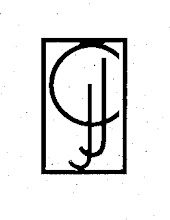 Whew! I finally finished Wayne Pacelle’s The Bond: Our Kinship with Animals, Our Call to Defend Them. The text is easy to read, the details difficult to digest.
Whew! I finally finished Wayne Pacelle’s The Bond: Our Kinship with Animals, Our Call to Defend Them. The text is easy to read, the details difficult to digest.If you’re already concerned about large-scale animal welfare, or you’re a vegetarian or vegan, you’re probably familiar by now with most of the anecdotes Pacelle delivers. For those of you who are unfamiliar with these stories, you may be assured that Pacelle’s storytelling lacks emotion and even omits many of the goriest details. That is to say that the book doesn’t trot out one horror after another. Nor is it one sweet, transspecies friendship tale after another. It’s a mix, heavily loaded with the accomplishments and failures of the Humane Society of the United States (for which Pacelle is CEO) and its efforts to change the world.
I know the HSUS isn’t everybody’s favorite animal advocacy organization. But despite how you may feel about it, and despite your dietary choices, you should read this book—especially if you’re a registered U.S. voter. The Bond shows U.S. lawmakers and lobbyists in action, and it’s appalling. Sure, we have an idea about how legislation gets passed and the shenanigans of the process. We need look no further than the recent impasses regarding federal expenditures. But the blatant pettiness of these politicians plus their attentiveness to a tiny fraction of the people they represent and their total disregard for matters that don’t immediately create wealth for someone are exposed in The Bond. The book should goad every American voter to at least monitor the voting records of his/her Congresspeople. We should find out who is working for whom and then speak out about it or vote accordingly.
Here’s a short list
 of facts about government agencies and laws that should get your dander up:
of facts about government agencies and laws that should get your dander up:– “Almost as a rule, high-ranking political appointees at the USDA come straight out of corporate positions in the meat industry. And they don’t see much difference between their jobs in government and their jobs in the industry.”
Which is to say that neither our safety nor animals’ suffering is top of mind for these bureaucrats.
– “[T]he USDA doesn’t apply the humane slaughter laws to poultry, even though birds are more than 95 percent of all animals slaughtered (about 9 billion chickens and 250 million turkeys are killed each year).”
This closely parallels the Animal Welfare Act…
– The Animal Welfare Act sets the minimum care standards for animals used in testing. Yet the law doesn’t cover lab-bred rats, mice, and birds because the “research industry excluded them in the definition of ‘animal.’”
Oh, if they only had a dictionary…

– “The U.S. Forest Service and the Fish and Wildlife Service admonish forest users to ‘never feed bears,’ but they make an exception for baiters who dump millions of pounds of food in the woods during the hunting season in order to get an easy shot. The bears regularly visit the bait sites—making them less wary of people and more inclined to raid other human trash resources.”
I thought I understood the term “bear baiting,” but I had no idea how much it resembles a canned hunt.
As you can imagine, The Bond has been a slow, painful read for me. I’m grateful Pacelle didn’t include any photographs. He did make me laugh at one point, though, in a chapter about the aerial hunting of wolves and polar bears. A quote from a pro-aerial hunting Alaskan governor represents, for me, the mindset of too many people:
“You just can’t let nature run wild.”
—Walter Hickel
—Walter Hickel



No comments:
Post a Comment